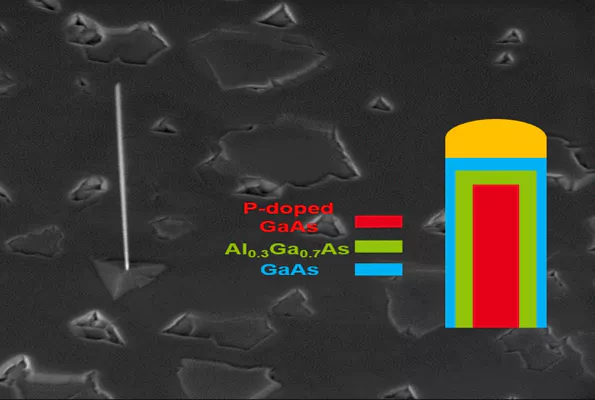Photodetectors based on nanowires
Context
Thanks to their nanometer-scale detection area and their bottom up fabrication process, nanowire photodetectors promise high sensitivity, ultra-fast response, and very large scale integration.Semiconducting nanowire feature unique properties for photodetection thanks to their reduced dimensions, waveguiding properties, and high surface-to-volume ratio. They concentrate light in a similar way to a concentrating lens. Furthermore, nanowires showed photoconductive or impact-ionization gain with ps time response (see here ).
Also, nanowires can be synthesized on silicon, which opens the possibility of monolithic integration of detector and readout.
GaAs nanowires
In this context, we are interested in photodetectors working in the visible range for biosensing applications.We build photodetectors based on GaAs/AlGaAs nanowires. We study the materials properties with photoluminescence spectroscopy and cathodoluminescence in complement to electron microscopy. The devices are measured on photodetection setups with various excitation wavelengths, chopping frequency, etc...
